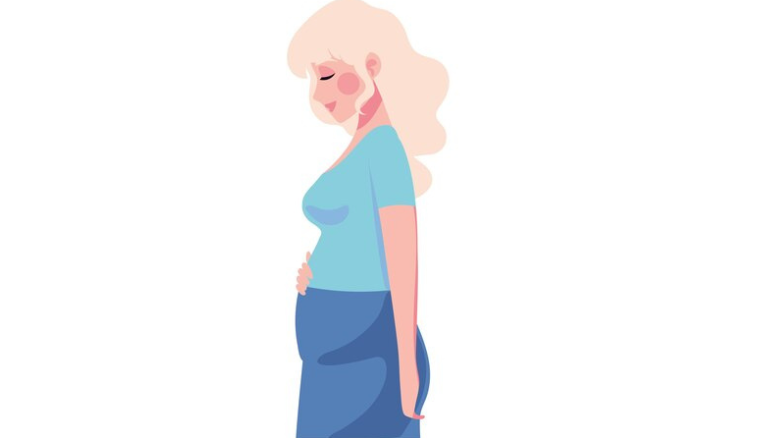
Pregnancy is a magical journey that brings anticipation and joy, yet it also raises a multitude of questions. For many women in India, the decision of when to have a child is influenced by various factors, including career goals, personal readiness, and family expectations. But how does age play into this complex equation? Understanding the impact of age on pregnancy can help you make informed decisions that align with your life plans and health needs.
Does the ticking of the biological clock really dictate the outcomes of pregnancy, or are there more nuanced factors at play that we must consider?
Key Takeaways:
- Age influences both physical and emotional aspects of pregnancy
- Younger women may experience different risks and benefits compared to older women
- Understanding the medical implications of age can aid in better prenatal care
- Personal stories and experiences can offer valuable insights
- Effective planning and support are crucial at every stage of pregnancy
The Impact of Age on Pregnancy: Risks and Benefits:
Deciding when to start a family is a deeply personal choice, but age can play a significant role in shaping the pregnancy experience. While the age of first-time mothers in India is gradually increasing due to educational and career aspirations, this shift brings both benefits and challenges. It's essential to weigh these factors carefully to ensure the well-being of both mother and child.
Pregnancy in Your 20s: The Early Bloom:
When you're in your twenties, your body is typically at the peak of its reproductive health. Fertility rates are generally higher, and the risks of complications like gestational diabetes and high blood pressure tend to be lower. Moreover, the elasticity of your body can make the physical demands of pregnancy and childbirth somewhat easier to manage.
However, it's not all sunshine and roses. Younger women may face societal pressure to conform to traditional family roles, potentially disrupting career paths or personal growth. Furthermore, financial stability might not be firmly established, adding stress to the growing family dynamic.
The 30s: Striking a Balance:
Entering your thirties often means you're more settled in life, both financially and emotionally. Many women find themselves at a crossroads, balancing career advancements with the ticking of the biological clock. Fertility rates begin to decline gradually, and the risks of conditions such as chromosomal abnormalities like Down syndrome slightly increase.
Yet, there's a silver lining. Women in their thirties often have a stronger sense of self and a clearer vision of their parenting style. They may also have more resources to provide a stable environment for their child, which can be incredibly beneficial in the long run.
Embracing Motherhood in Your 40s: The Late Bloom:
Pregnancy in your forties is often seen as more challenging, primarily due to decreased fertility and increased risks of complications like preeclampsia and miscarriage. Assisted reproductive technologies such as IVF are more commonly used, and pregnancy-related fatigue can be more pronounced.
Despite these challenges, many women in their forties bring a wealth of life experience, wisdom, and emotional maturity to parenting. They often have well-established careers and a robust support network, which can compensate for some of the physical challenges associated with later pregnancies.
The Emotional Rollercoaster: Psychological Impacts:
Pregnancy, regardless of age, is an emotional journey, but age can influence the psychological experience. Younger mothers may grapple with identity shifts and the sudden responsibility of nurturing a new life. In contrast, older mothers might face anxiety over health risks and the societal stigma of being an "older" parent.
Each age group faces unique emotional challenges, but support from family, friends, and mental health professionals can ease the transition. Open dialogue about these feelings can foster a supportive environment, allowing you to embrace the joys and trials of motherhood fully.
Navigating Age-Related Medical Concerns:
Staying informed about potential age-related medical concerns is crucial for a healthy pregnancy. Regular prenatal visits, screenings, and a balanced lifestyle can mitigate many risks associated with age. Doctors often recommend specific tests, such as amniocentesis or chorionic villus sampling, to detect genetic abnormalities, especially for women over 35.
Adopting a proactive approach to healthcare, including maintaining a nutritious diet, staying active, and managing stress, can significantly improve pregnancy outcomes across all ages. Personalised care plans and open communication with healthcare providers can further enhance this journey.
Personal Stories: Voices of Experience:
Listening to personal stories can provide comfort and perspective. Kavita, a mother in her twenties, shares how she managed societal expectations while pursuing her career. Meanwhile, Meera, who became a mother in her forties, discusses her journey through IVF and the joy of raising a child later in life.
These narratives reveal that while age presents its unique set of challenges and advantages, the shared experience of motherhood transcends age-related boundaries. Each story adds a rich layer to the collective understanding of pregnancy and parenting.
Tips for Different Stages of Pregnancy:
No matter your age, preparation and support are key. For younger mothers, balancing education and career with parenthood may require strategic planning and open communication with partners and employers. Building a strong support network can alleviate some of the pressures.
For those in their thirties and forties, prioritising self-care and seeking medical advice early can pave the way for a healthier experience. It's beneficial to connect with other parents in similar situations to exchange advice and support.
Conclusion:
Age undeniably impacts pregnancy, bringing a mix of risks and benefits that vary across different stages of life. Whether you're a young mother or embracing motherhood later in life, understanding these dynamics can help you navigate this profound journey with confidence and grace. Remember, every pregnancy is unique, and what matters most is the love and care you provide for your child.


